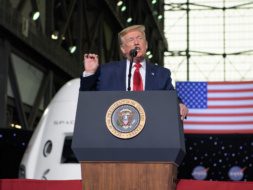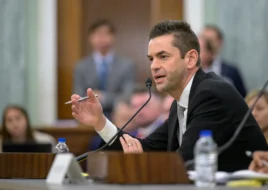SpaceX, Blue Origin, and Virgin Galactic may get to space differently, but they agree on one thing: the industry needs more time in the so-called “learning period” on commercial spaceflight that is set to expire Jan. 1.
State of play: The House held a hearing in July on extending the FAA’s “learning period” for commercial spaceflight and Rep. Kevin McCarthy (R-CA) introduced a bill in September that would extend the rulemaking moratorium for another eight years.
The Senate Commerce, Science, and Transportation Committee held its own hearing this week on the topic with representatives from the three companies flying private citizens to space. Here’s are some of our biggest takeaways:
Fund the FAA: Multiple officials said the FAA will need more money and staff to establish and enforce regulations on the commercial spaceflight industry. Congress needs to double the funding for the FAA’s Office of Commercial Space Transportation licensing division, and give the agency more power to hire quickly, said William Gernstenmaier, VP of build and flight reliability at SpaceX and former NASA official.
Slow, but steady: Officials stressed that any change must happen slowly to give the FAA plenty of time to collaborate with industry, a process that would likely take multiple years. Sirisha Bandla, VP of government affairs and research at Virgin Galactic, said her company supports an eight year extension that would serve as a sort of transition period to a stricter regulatory environment.
While we’re here: Gerstenmaier fielded questions from Sen. Ted Cruz (R-TX) about how reviews and certifications from FAA and FWS are delaying the timeline for Starship’s next flight.
“It’s a shame when our hardware is ready to fly and we’re not able to go fly because of regulations,” he said. “The pace of our test flight should not be governed by the regulation.”




